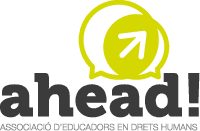The Holocaust is one of the darkest chapters in human history, and to face this harsh reality, the AHEAD organization together with partner organisations engaged in the GREM Project.
Supported by the CERV programme of the European Commission, the main aim of this project is research on awareness-raising and remembrance of the victims of totalitarian regimes, as well as the creation of narratives and spaces of democratic memory in collaboration with various entities from all over Europe.
Targets
Within this project, we have selected testimonies from people from all over Europe who recount their experiences of capture and deportation to concentration and extermination camps, with the aim of preserving their living memory.
We will conduct detailed research on local stories of success and failure in resisting totalitarian regimes. We will work closely with policymakers, administration representatives and education professionals at the local level to collect testimonies of survivors of totalitarian regimes and the Holocaust that affected our community. This task will be carried out in collaboration with memorial organizations, ethnic minorities and democratic resistance groups.
In addition, the project includes the creation of a team specialized in the development of awareness-raising tools aimed particularly at young adults. The long-term goal of this project is to raise awareness in communities through education, in the hope that people will be better prepared to deal with the distortion of history by totalitarian regimes, prevent the spread of news false and reject historical revisionism.
Training
The Gamification for remembrance Training course that was held in Bulgaria in October 2023, had as its main objective to provide participants with tools and resources to address democratic memory through non-formal education, inserting itself within the human rights framework. The final objective was to train them to develop a detective game in order to raise awareness about the totalitarian pasts of the various participating countries.
For more information on the training, click Here.
Development of the workshop
With the knowledge acquired during the course in Bulgaria and the previous historical research, the process of developing the detective game begins. This phase not only involves detailed planning but also the actual realization of the game itself. Game tests will be conducted with 3 groups, including approximately 20 participants per team. The aim of this stage is to evaluate its operation, identify any errors or areas of expansion, with the aim of perfecting the detective game.
Transparency and the active participation of participants will be key to fine-tuning the game and ensuring that it accurately reflects the specific historical and social aspects of the Catalan context. This testing process will be essential to ensure that the detective game is not only an immersive and entertaining educational experience, but also an effective tool for the transmission of democratic memory to the participants.
Target groups
Key participants in the project include educators, with a particular focus on teachers of history, philosophy, ethics and religion at the secondary level. This collective will play a fundamental role as transmission agents, bringing the project to the classrooms and directly influencing the training of young people.
On the other hand, political leaders and public officials who operate in the field of education at local level are highlighted. These professionals will not only contribute to the integration of the project in the educational framework, but will also act as multipliers of the expected impact, ensuring effective dissemination.
The third target group is the game's own audience: young people and teenagers. This sector of the population forms the central focus of the project, since the game is specifically designed to sensitize them and encourage reflection on issues of democratic memory. Young people and adolescents are not only receptive to new forms of learning, but also become active agents of social change when they awaken to these fundamental questions.
This diversity of audiences ensures that the project comprehensively addresses the different levels of the educational community, from the academic field to the direct experience of young people, thus creating a significant and lasting impact.
Ethical statement
The Ethical Considerations of the A Game to Remember: Gamifying Holocaust Remembrance project to ensure that detective games are implemented with sensitivity, accuracy and respect for the victims and survivors of the Holocaust and other authoritarian and totalitarian regimes. All gamification activities are carried out following the following principles:
Respecting the memory of the victims of the Holocaust and authoritarian and totalitarian regimes and their families as well as reflecting a dignified portrait of the stories of the Holocaust and survivors and/or victims of authoritarian and totalitarian regimes. Unconditional position against the Holocaust and/or the distortion of authoritarian and totalitarian regimes, in addition to refraining from causing damage and protecting the origins of the stories used. Protection of personal objects used as game accessories, non-commercialization of activities and voluntary participation in activities.
International partners
Amaro Drom e.V
Amaro Drom e.V is a multicultural youth self-organization of both Roma and non-Roma individuals that aims to create spaces for political and social participation for young people through empowerment, mobilization, and self-organization.

Jakab Gláser
The foundation is called named after the late Jakab Gláser without whom the shtiebel would have closed down decades ago. Jakab Gláser was the heart of the Teleki Tér Shtiebel for decades.

Jewish community of Lithuania
The Jewish Community of Lithuania – Lithuanian Jewish Community (lzb.lt)

Infinite Opportunities Association
Infinite Opportunities association is a bulgarian NGO established at the beginning of 2010 that is committed to youthwork, active citizenship, promotion of non-formal education and encouraging young people to develop their social and creative potential for a better future for everyone.
HOME - Infinite Opportunities Association (infopass.eu)



Funded by the European Union. Views and opinions expressed are however those of the author(s) only and do not necessarily reflect those of the European Union or the European Education and Culture Executive Agency (EACEA). Neither the European Union nor EACEA can be held responsible for them.

